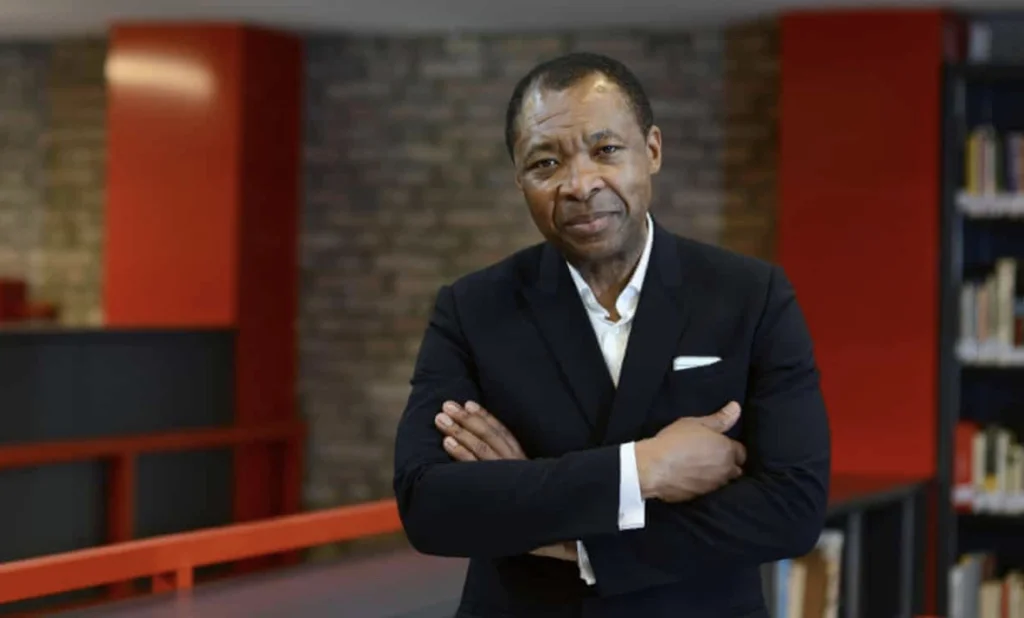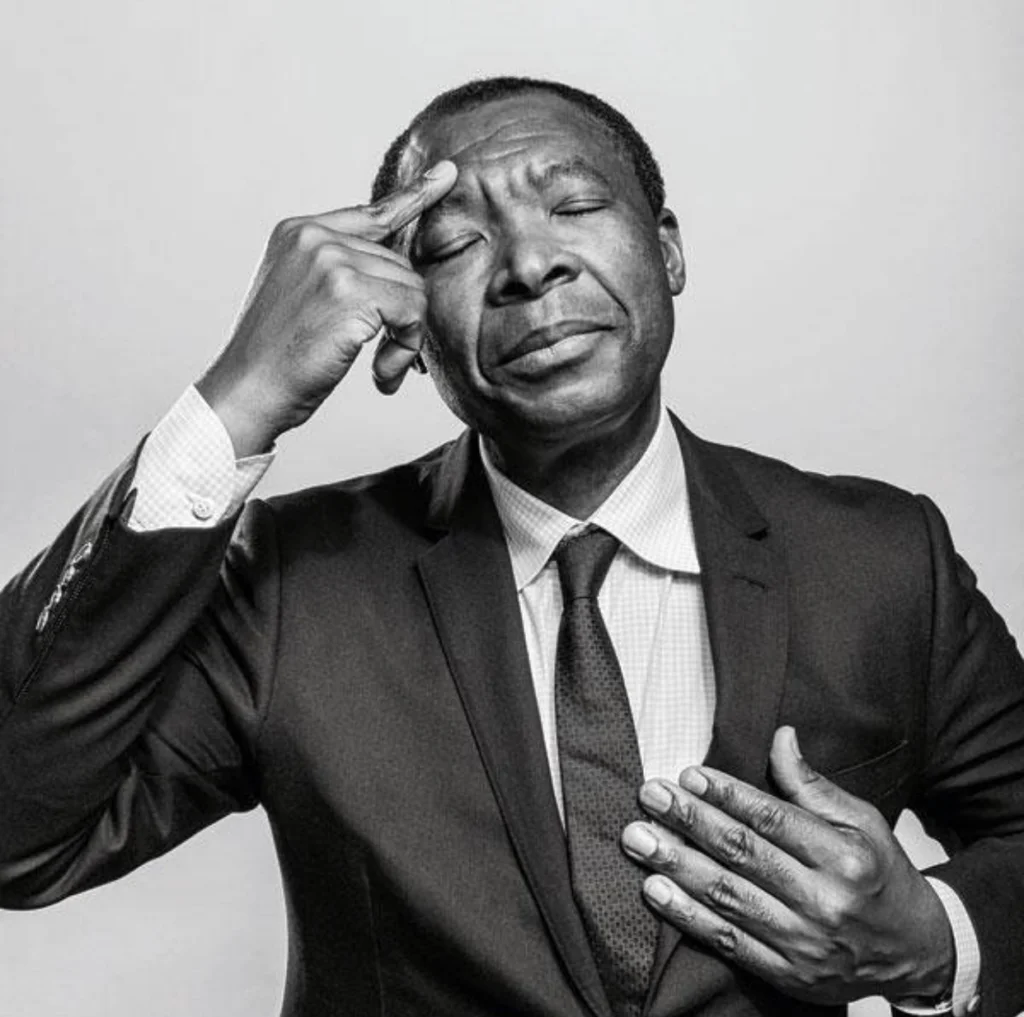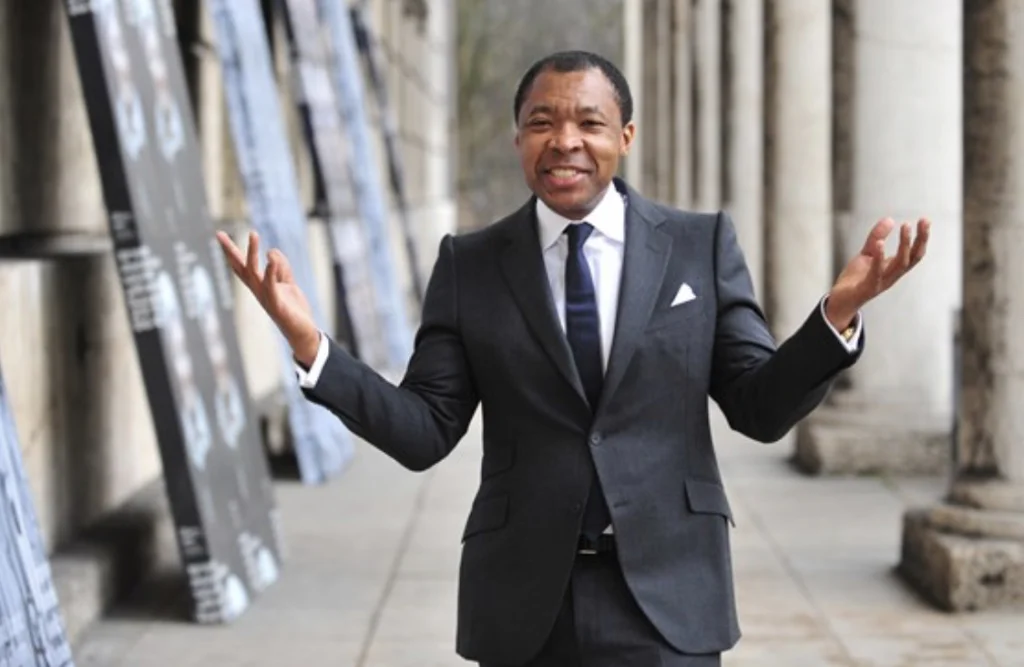Nigerian born Okwui Enwezor was a curator and an art historian who engaged with the different versions of post-colonial and global art. He was one of the leading and highly influential figures in curatorial practice at the time. Not only did he challenge and expand the Western perspective by introducing new artists and works, he also broke down barriers in roles that were traditionally occupied by Europeans.
His exhibitions were nothing short of grandiose reflecting his conceptual brilliance and intellectual visionary. His curatorial approach synthesized disparate elements such as art, documentary, popular culture, and archive materials, to create unexpected juxtapositions between different media and time periods.

Enwezor’s entry into the art world started with him observing various exhibits. He soon realized that artists from Africa were not present so he began critiquing the shows. To voice his views, he started writing extensively for art magazines and even established one himself. In 1994, he founded Nka: Journal of Contemporary African Art, which was published in collaboration with the Africana Studies and Research Center at Cornell University in Ithaca, New York.
Enwezor gained recognition as a curator for his work on several exhibitions. Enwezor was the first non-European to host the Documenta exhibition where he tackled political topics such as globalization and showcased African art forms beyond the confines of American and European traditions. His practice emphasizes ideas over material objects, a departure from the “art for art’s sake” mindset.

Throughout his career, Enwezor brought to light the art histories that informed contemporary art. He delved into the past to push forward into the present, always with a fresh and recognizable perspective. It is important to recognize the profound impact left by the Nigerian art historian, curator, poet, and educator who transformed the curatorial present of global exhibitions and anticipated their decolonizing futures. Enwezor created political platforms and artistic manifestos that not only changed the form and function of global exhibitions, but also opened up new ways to align activism with aesthetic practices, performative displays, and curatorial initiatives.

Enwezor’s career was marked by his ability to highlight the art histories that informed contemporary art, using a fresh and recognizable perspective that drew from the past to push forward into the present. It is important to recognize that Enwezor – a Nigerian art historian, curator, poet, and educator – transformed the curatorial landscape of global exhibitions and triggered the decolonizing process for the future. He created political platforms and artistic manifestos that changed the form and function of global exhibitions as well as provided new avenues to align activism with aesthetic practices, performative displays, and curatorial initiatives. Acknowledging the profound impact of Enwezor, who left an indelible mark on the art world is very crucial.


